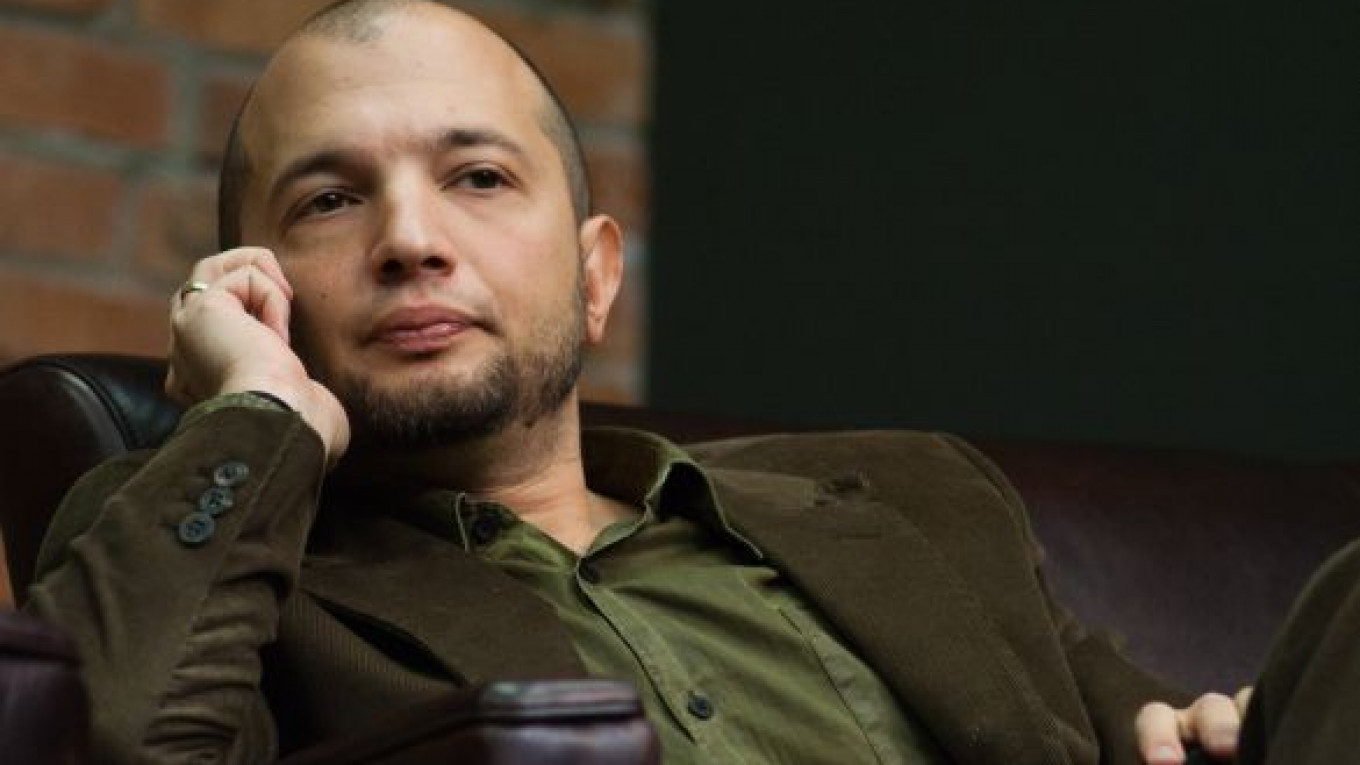Two high-ranking media executives have been pushed out of their jobs in shake-ups that both said were business driven, but that still raised worries among some observers about politically motivated censorship.
Kommersant holding company CEO Demyan Kudryavtsev was fired, it was announced Thursday — just months after the company’s owner, Alisher Usmanov, sacked an outspoken editor at Kommersant Vlast under reported pressure from the Kremlin.
Bolshoi Gorod editor-in-chief Phillip Dzyadko also unexpectedly announced Thursday that he would resign as head of the popular lifestyle magazine.
Both said that politics had nothing to do with their departures, but in his farewell column published Thursday, Dzyadko painted a bleak picture of the media landscape.
“In the first summer month of Putin’s third term, a ‘purge’ of sources of independent media is taking place in front of everybody’s eyes,” he wrote.
Kudryavtsev said his exit from Kommersant was largely driven by new business priorities.
“It’s not a corporate secret,” he in an interview with business news website Slon.ru. “It’s just that people who have proved their success in media have been given the task of developing strategies for growth. … There is no need to seek a direct political connection.”
But Galina Timchenko, editor-in-chief of Lenta.ru, told Openspace.ru that Kudryavtsev’s dismissal “means that they are shutting off our channels of access to independent information.”
Kommersant’s high-profile columnist, Oleg Kashin, told Openspace.ru that he didn’t believe that the newspaper “can preserve its current look” without Kudryavtsev.
The management team at Kommersant’s holding company will now be placed under the control of Ivan Tavrin of mobile phone giant MegaFon, which is also owned by Usmanov. Tavrin will take the helm of the board of directors, while United Television CEO Dmitry Sergeyev will replace Kudryavtsev as general director.
Kommersant’s Kremlin pool reporter and editor of Russky Pioneer magazine, Andrei Kolesnikov, had earlier been appointed the publishing house’s executive director, RIA-Novosti , citing a source at the newspaper.
Kolesnikov said his “main task” was to “protect Kommersant’s interests from any outside threats,” Gazeta.ru Saturday.
The free biweekly , which is owned by Dozhd TV and has a circulation of over 100,000, had taken a more political tone as of late, giving considerable space to coverage of opposition rallies and political opinions.
It once hosted a meeting of organizers of an opposition rally, the BBC News Russian service . In May, Bolshoi Gorod was published with 13 different covers carrying opposition slogans, Kommersant .
But Dzyadko said his decision to leave was not linked to opposition politics.
A senior manager familiar with the situation told The Moscow Times that Dzyadko was fired for making the entertainment magazine too political but not for providing a soapbox for the opposition.
“If he had been for Putin, there would have been the same problem,” the source said.
“It’s just that advertisers are told that the publication is about the nuances of city life, and then they open the magazine and see posters in defense of Pussy Riot and they feel deceived,” the source added.
Yekaterina Krongauz, editor of the Bolshoi Gorod website, told Kommersant-FM that Dzyadko’s departure was linked to investor demands.
Dzyadko himself told Kommersant that he had “the most dramatic conversation” with the magazine’s owners in May and they told him they wanted a change in editorial policy because the magazine had had “trouble selling ads” for 10 years.
Nevertheless, he said that the owners, Natalya Sindeyeva and Alexander Vinokurov had “never interfered with the editorial policy in the entire time I worked with them.”
Dzyadko will be replaced by Alexei Munipov, Kommersant reported. Munipov has been a music critic and political columnist at Bolshoi Gorod, Izvestia, Forbes and Ekho Moskvy.
A Message from The Moscow Times:
Dear readers,
We are facing unprecedented challenges. Russia's Prosecutor General's Office has designated The Moscow Times as an "undesirable" organization, criminalizing our work and putting our staff at risk of prosecution. This follows our earlier unjust labeling as a "foreign agent."
These actions are direct attempts to silence independent journalism in Russia. The authorities claim our work "discredits the decisions of the Russian leadership." We see things differently: we strive to provide accurate, unbiased reporting on Russia.
We, the journalists of The Moscow Times, refuse to be silenced. But to continue our work, we need your help.
Your support, no matter how small, makes a world of difference. If you can, please support us monthly starting from just $2. It's quick to set up, and every contribution makes a significant impact.
By supporting The Moscow Times, you're defending open, independent journalism in the face of repression. Thank you for standing with us.
Remind me later.






